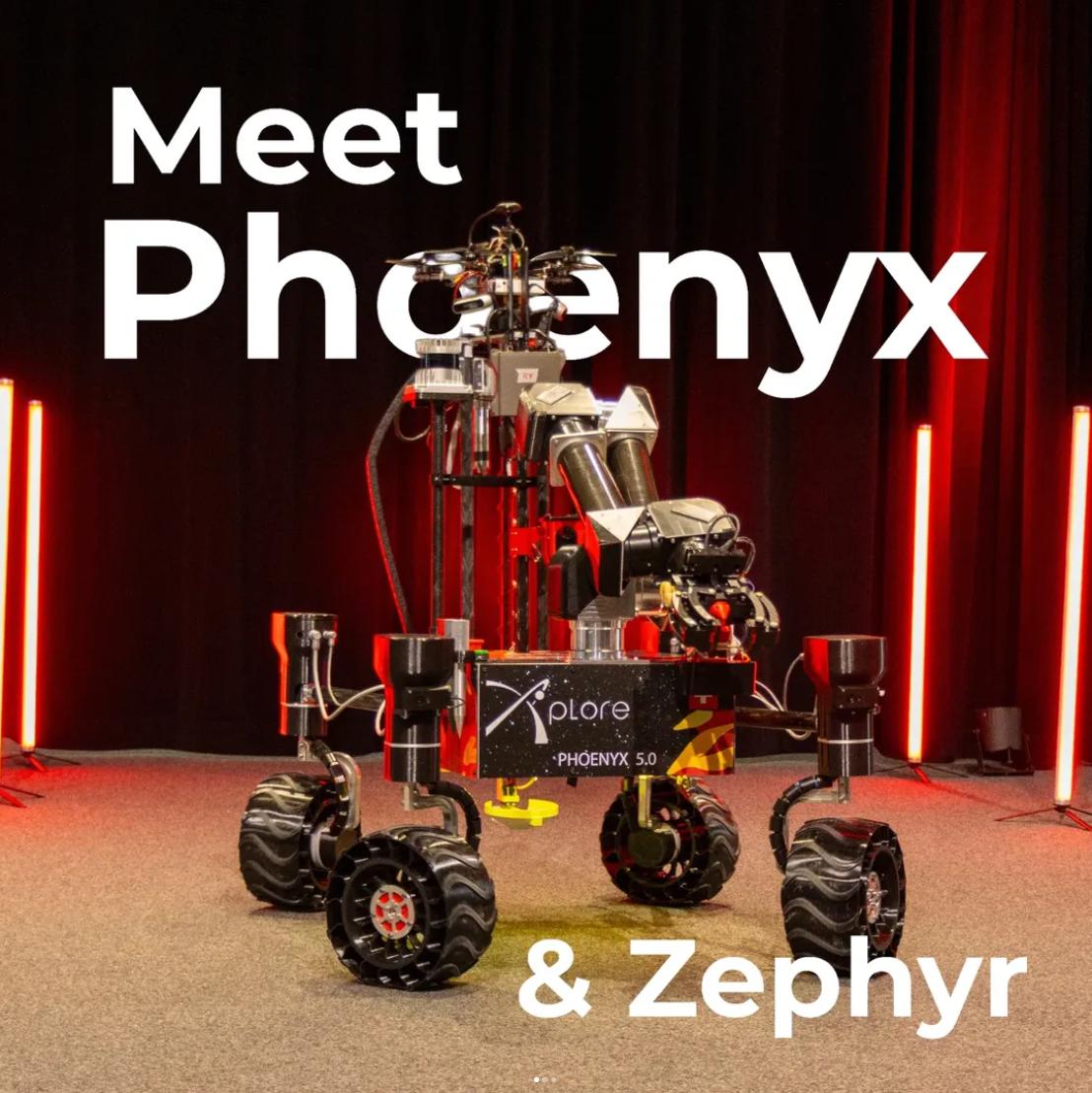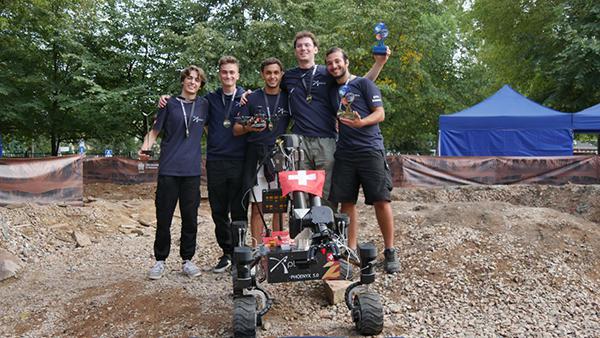EPFL Xplore wins first place at the 2025 European Rover Challenge

© 2025 EPFL Xplore
The EPFL Space Center is proud to announce that EPFL Xplore has taken 1st place at the 2025 European Rover Challenge (ERC), Europe’s largest and most prestigious Mars rover competition. This achievement highlights the strength of Swiss engineering and marks a major milestone for the team.
About EPFL Xplore
EPFL Xplore is a student-led space robotics association at EPFL, supervised by the EPFL Space Center and Maxime Rombach. It is part of the MAKE initiative, that promotes interdisciplinary, project-based learning.
The team brings together 120 students from 10 academic fields, structured across three pillars: Competition, Education and Research. Their mission is to develop technical excellence and foster the next generation of engineers through hands-on learning and industry collaboration.
What is the European Rover Challenge?
The ERC is an international competition and conference held annually in Poland, where university teams design and test Mars rover prototypes on realistic terrain. This year’s edition, hosted at AGH University in Kraków from August 29–31, featured 25 finalists from 12 countries, selected from over 100 applicants.
Swiss excellence on display
Switzerland was represented by two teams: EPFL Xplore and FHNW Rover Team (2024 winners), confirming our country’s strong presence in space robotics.
For the second year, Switzerland has demonstrated it has some of the best engineering worldwide. We are proud to carry that spirit forward.
The competition includes tasks based on real NASA and ESA missions, judged by experts from the space industry and academia.
EPFL Xplore’s rover, Phoenyx, earned the highest overall score, while their drone, Zephyr, won the Drone Excellency Award.
Five years ago, we started dreaming about this moment. This weekend, that dream became reality. This victory is the result of countless hours of dedication, teamwork, and passion.

Spotlight on Zephyr: winner of the Drone Excellency Award
So what made Zephyr stand out from the competition? According to the team, three major innovations were key:
- Autonomous driving: the drone featured a finely-tuned autonomous control system enabling it to navigate to precise coordinates.
- Hot-swap power system: Zephyr could swap batteries without shutting down, eliminating reboot times and improving task efficiency.
- GPS or no-GPS: the drone was configured for multiple situations (including local conditions in Poland), so the team was prepared for the worst-case scenario.
Beyond technical aspects, the team credits their success to tight organization, rigorous mission simulations, and budget-smart engineering, all made possible by the diverse expertise within EPFL Xplore.

This victory is a strong start to the academic year and a testament to the creativity, expertise, and dedication of EPFL students. Well done, team Xplore!
Follow EPFL Xplore:
Website: https://epfl-xplore.ch/
LinkedIn: EPFL Xplore on LinkedIn
Instagram: Preparation for ERC 2025